What’s the inspiration behind Dryvebox?
Adeel was picking up golf for about a year before the pandemic, and got shut out from the game once the pandemic hit. He needed a place to play. At home? No go. San Francisco houses with kids are not places to put indoor simulators. But what about the parking spot out front? An idea was born.
Adeel then went looking for an incredible coach to help him grow the business, taking lessons from people around the Bay Area and waiting for the right person. Five minutes into his lesson with Jake, Adeel stopped the lesson, and gave Jake the real story on why he was taking a lesson: he wanted a cofounder, one just like Jake. 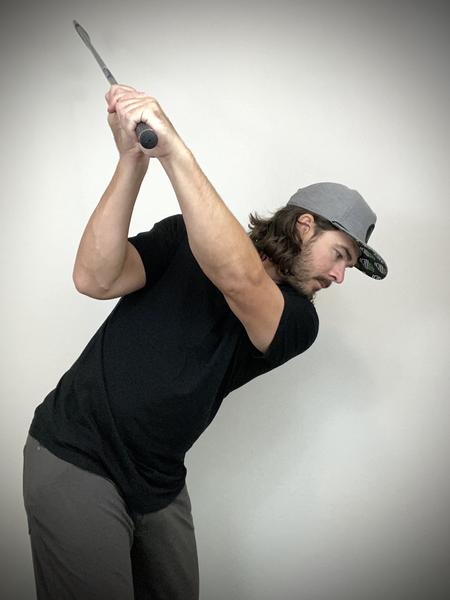 Jake's swing!Jake listened (the hour lesson was already paid for anyway!), went home, talked with his fiancée (“Something either really big or really weird just happened to me today”), and made the decision to jump in with both feet.
Jake's swing!Jake listened (the hour lesson was already paid for anyway!), went home, talked with his fiancée (“Something either really big or really weird just happened to me today”), and made the decision to jump in with both feet.
What do you think is the most important skill founders need to succeed?
Grit and hustle. These are related. You need to be indefatigable. Nothing can shake you in your commitment to your company and your belief in the value to people of the problem you’re solving. You run through walls. You do what it takes to make that a success.
How did you meet your co-founder? How do you work together?
We already mentioned how we met with my golf lesson / secret cofounder tryout. As for working together now, our business is awesome in that it’s about something fun, so we can still get out there and play golf and enjoy ourselves. We also love to throw team dinner strategy sessions. So, on the whole, we both take work home, because if we’re not working on Dryvebox, 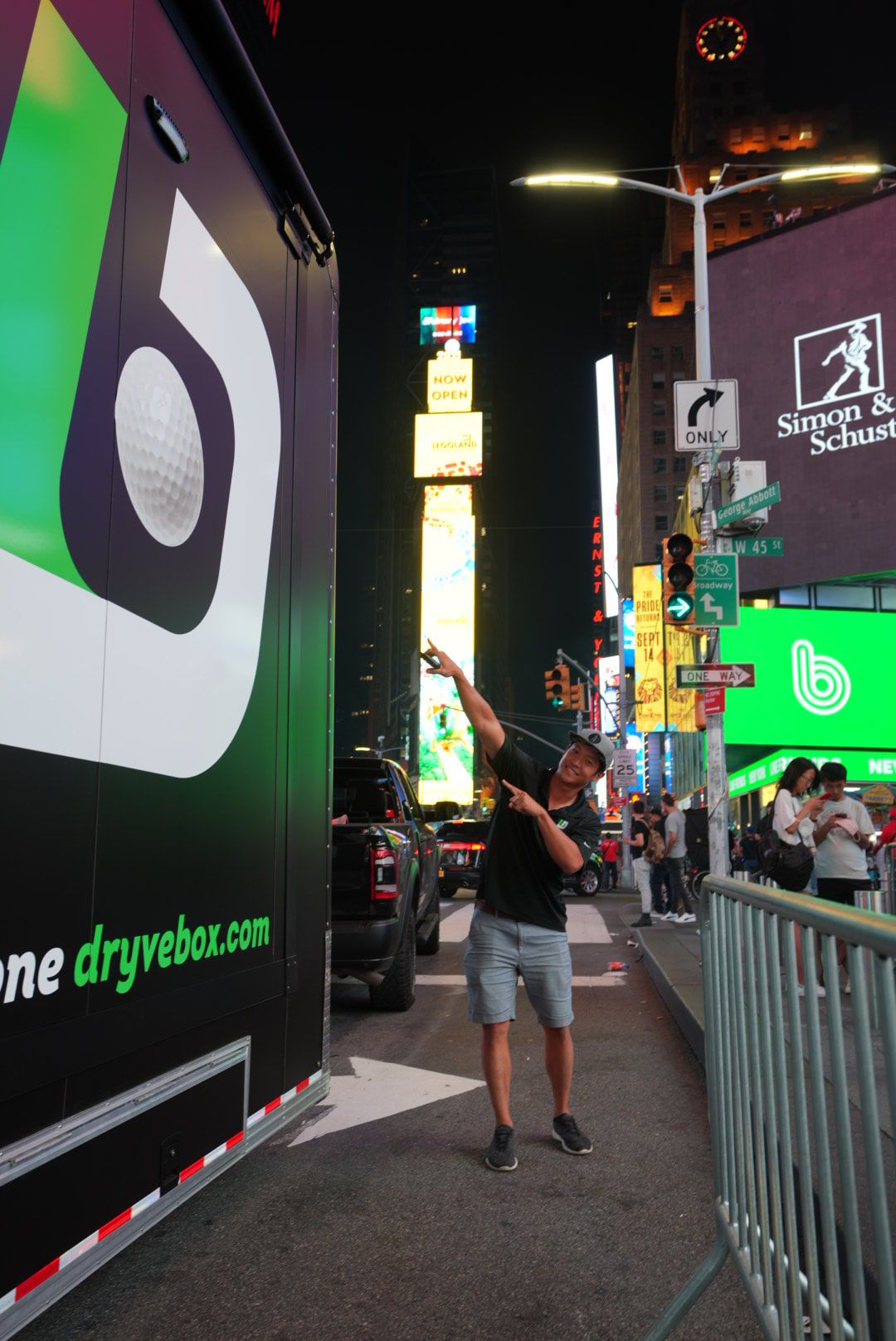 Adeel shows off the goods!we’re golfing, and thinking about golf and Dryvebox!
Adeel shows off the goods!we’re golfing, and thinking about golf and Dryvebox!
How do you handle risk and competition?
You must take risks to succeed. There are smart ways to take risks though. We don’t shy away from decisions. We try to minimize the downside impact of the risks we take. And we move quickly. As for competition, we love it! It’s highly motivating to see people out there trying to solve similar problems as us. That said, we know what we need to do, so we don’t get caught up in the noise about what’s going on outside our company.
What are the biggest challenges you’ve faced while launching your company?
I think for us, the two biggest challenges have been choosing the right business model to go after, and managing supply chain issues during the pandemic. To the first, we have so many ways that we serve people and that drive value, so we’ve spent a lot of time debating which areas to put our resources behind and develop further. As for the supply chain, I don’t think we’re alone in this, but it has been a lot of work to get our stuff out there as fast as we want. 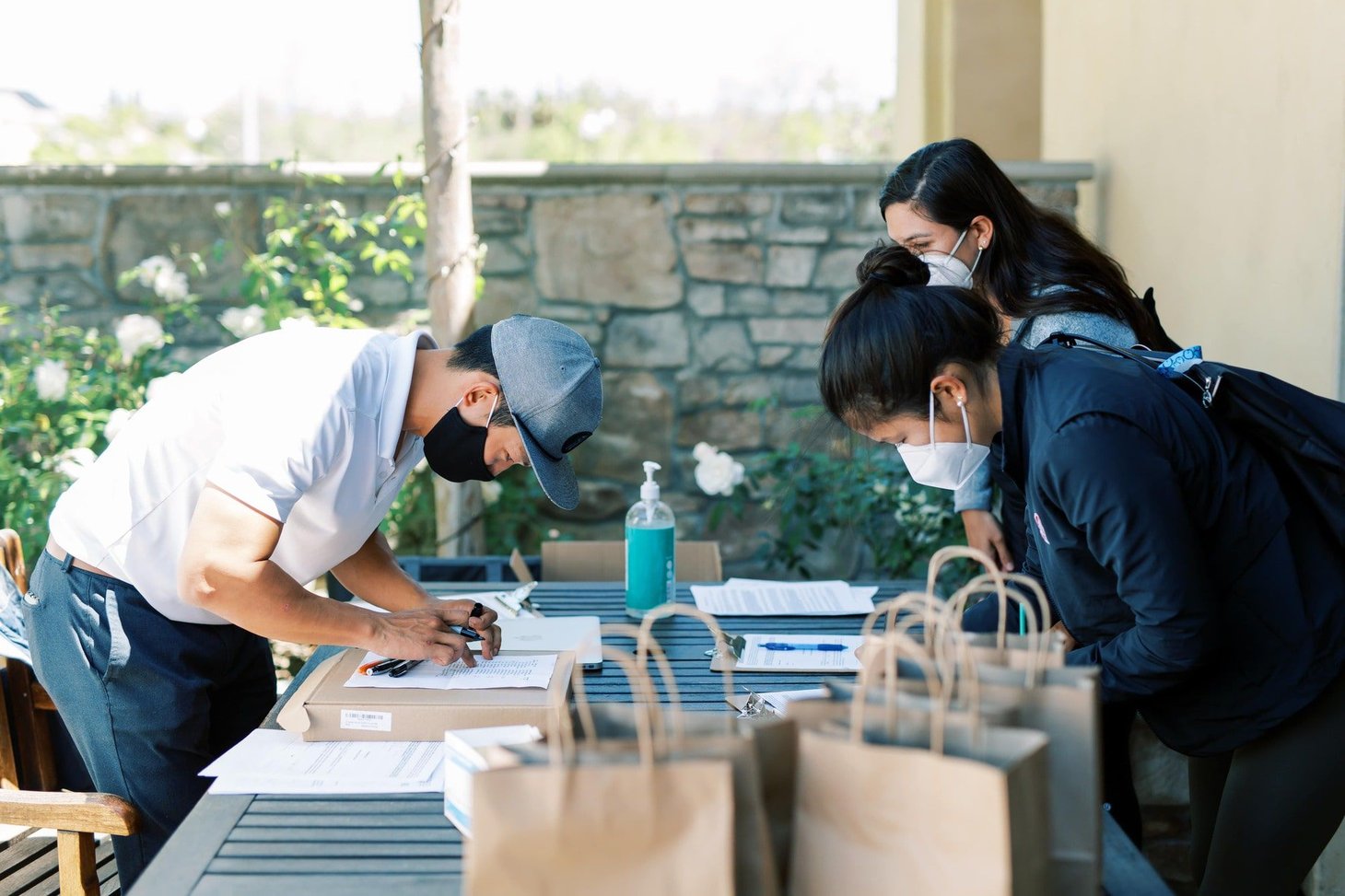 Finishing some outdoor paperwork
Finishing some outdoor paperwork
Have you learned anything new or surprising about yourself through this process?
Adeel - I am a glutton for the startup grind and I love the process of building something great. I remember when I was building my last company, I had thought many times, especially when things got hard, that I would want to stop working so hard after I sold the company. I thought maybe after I had achieved success I would stop feeling so hungry. What I learned after my last acquisition is that I actually felt more empty instead of relieved, because what was keeping me motivated and happy was owning the chase. Working hard towards an impactful mission IS what I live for. I have the privilege of finding out about this through building Dryvebox. This time around, I am savoring the challenge.
Jake - I’ve learned that I’m good in high stress situations! We serve some pretty big time events, and occasionally they’ve been in really tight places for the box, but I’ve learned that even when the intensity is high, I’m pretty good at keeping cool, staying in the moment, and working with people to figure things out.
Why did you decide to raise from the crowd via Republic?
The whole point of Dryvebox is to increase access to the game, and we liked the idea of carrying that theme over to our fundraising. We had raised roughly $2 million in the typical fashion, and were planning on doing that to finish out our round. But we heard about this thing called Republic, and we loved the idea. Not only would our product be for everyone, but ownership in our company would also be opened up for all people. 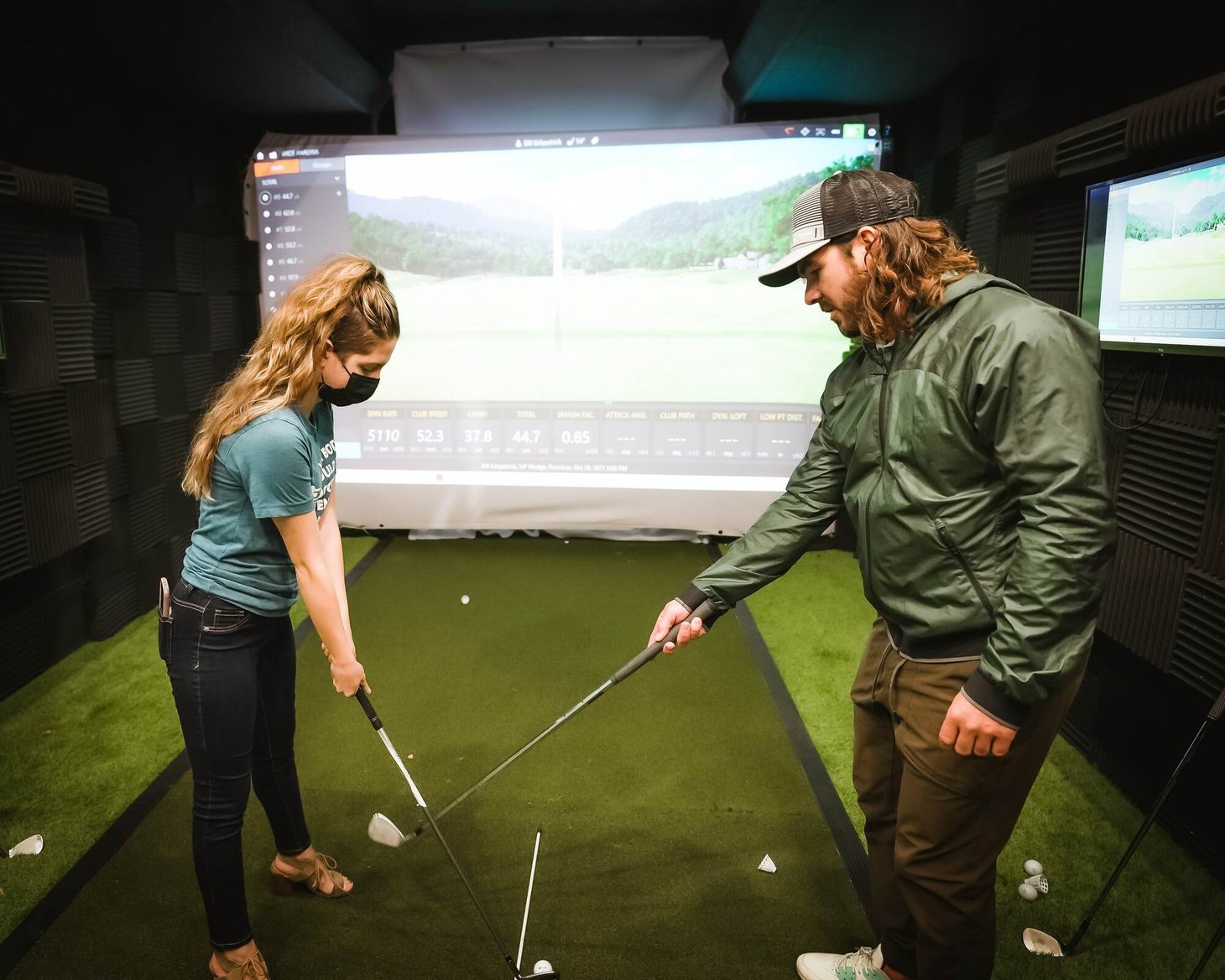 Coaching in action
Coaching in action
What’s your team culture like?
The way we describe it is that we’re a place with relaxed but super competent people who get things done, who love the ability to inspire and help others achieve their goals, and who take ownership in their work. We’ve all come from different places - startups, consulting, law firms, golf courses, tech companies, and it’s pretty cool to mesh our personalities with what we’ve learned to create this environment where people can thrive, build a great business, and have fun.
What is your superpower?
Adeel - I can "out-scrap" anyone. I'll sleep in a trailer, drive across the country, and convert an old bathroom into an office space if that's what it takes to make our startup successful. And yes, those are all things that may or may not have happened with Dryvebox.
Jake - I have a special ability to focus for long periods of time. Basically, I can get in the zone on something and just crank on it for hours and hours without any awareness of what’s going on around me.
What’s your kryptonite?
Adeel - My daughter, short downhill putts, and people with negative attitudes.
Jake - Staying organized. I’ve learned to get organized folks around me, because then, magic happens!
Do you have any unusual routines or habits?
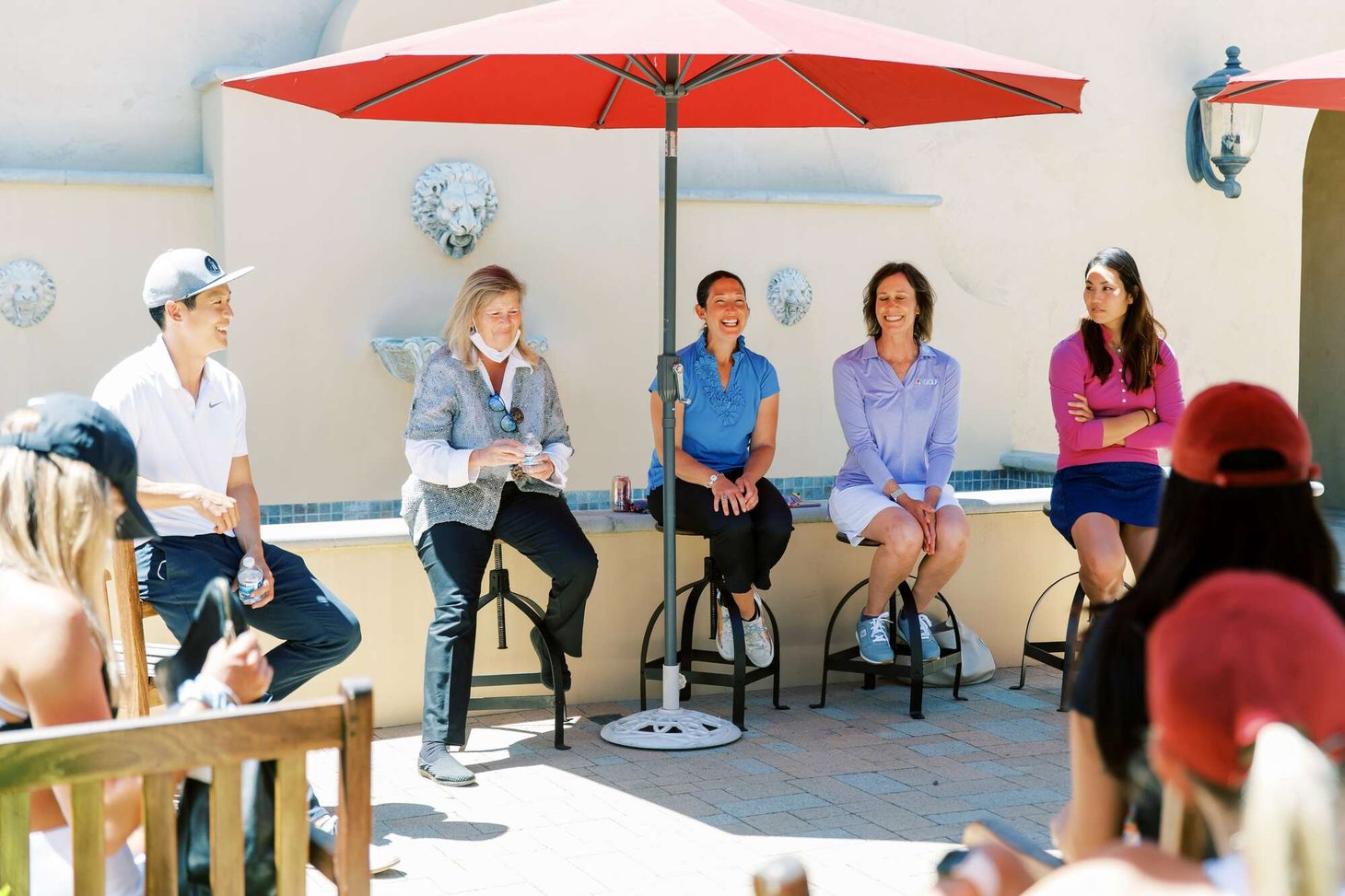 Adeel at a women's golf clinic
Adeel at a women's golf clinic
Adeel - I average 15,000 steps a day, 5000 steps before breakfast and 5000 steps after dinner. A lot of those steps are done while I'm talking on the phone/zoom meetings.
Jake - Pour over coffee in the morning, creative work early in the morning, boring work stuff in the afternoon, and trying to jog nightly or walk 9 holes for better sleep.
What do you like to do in your spare time?
Jake - I’m obsessed with work and what I do - spare time gives me anxiety.
Adeel - I love to play with my kids.
Are there any apps or gadgets that you can’t live without?
Adeel - Airpods.
Jake - Can’t live without Spotify.
If you could give yourself one piece of advice 5 years ago, what would it be?
Jake - Funny enough, I’d just say, keep doing what you’re doing.
Adeel - I would tell myself to enjoy the journey more instead of focusing so much on just hitting goals.
What’s the best piece of advice you’ve received?
Jake - Stay curious. 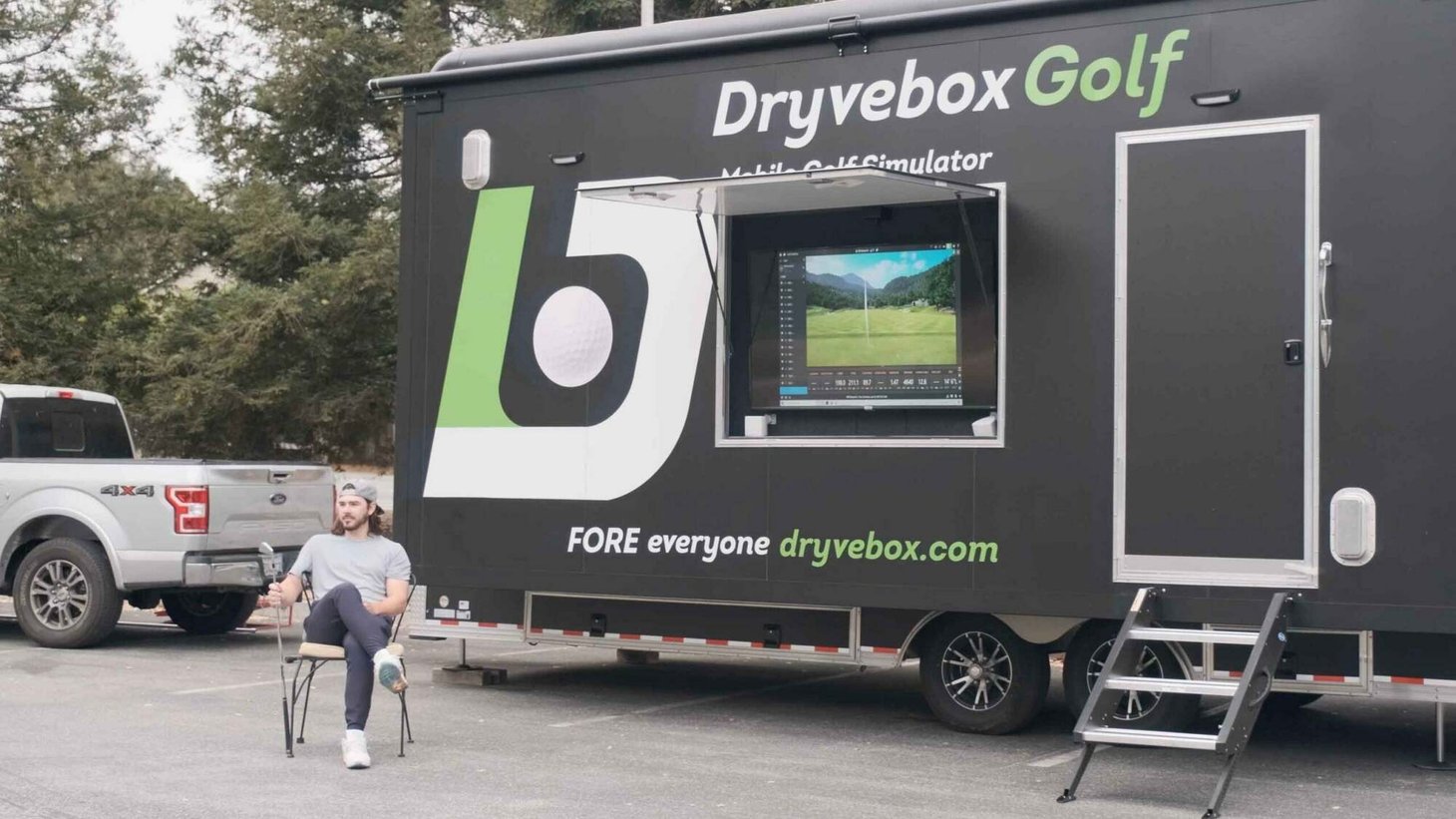 Dryvebox with Jake for scale
Dryvebox with Jake for scale
Adeel - Don’t let perfect get in the way of good. I’m not a perfectionist, but I live by this motto, because in a startup, trying to build something perfect is way inferior to shipping all the time and learning from your product actually being out there.
Do you have a(ny) mentor(s)? If so, what have they taught you?
Adeel:
Dalton Caldwell, my group partner at YC, helps me recognize activities that do not actually matter through honest questioning. The big takeaway here is to ask yourself what happens if you don’t do the thing you think you have to do. Oftentimes, it’s actually not a big deal.
Satish Tadikonda, Board of Director of my last company, taught me how to take more calculated risks, not just in running a company but in life. My instinct had often been to opt for a “safe” strategy, and he pushed me to at least run the thought experiment of what a riskier option could garner.
Michael Singer, mentor/advisor, taught me how to negotiate. And my favorite lesson from Mike is that sometimes you negotiate not for your sake, but actually to give the other side more satisfaction with what you’re working on.
Jake:
My parents, who taught me to be kind to people and be yourself.
Hockey coaches over the years, where I learned, you guessed it, grit.
Adeel and Jake
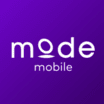


 Oops! We couldn’t find any results...
Oops! We couldn’t find any results...





